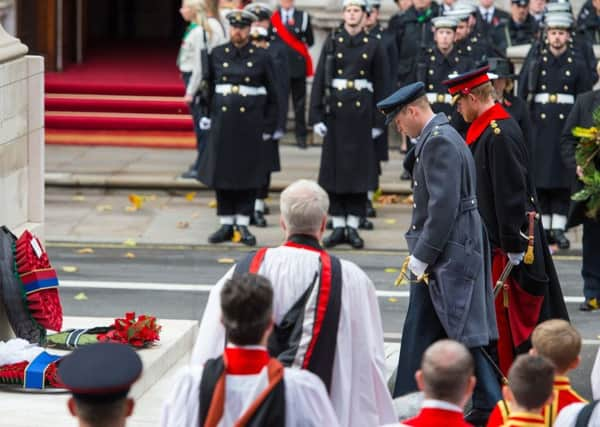Margaret Holloway: Remembrance finds meaning in grief and loss


Yet we prefer not to think about death until it rudely interrupts the rhythm of life. As individuals and societies, death remains something which we find extraordinarily difficult to deal with.
There is a paradox here because those moments in the life of our nation and local communities when we come together to remember those who have died – be it Remembrance Sunday when we commemorate those who died fighting for their country, the memorial service for those who died in the Grenfell Tower fire, the One Love Manchester benefit after the Ariana Grande concert bombing or the dedication of the Hull trawlermen’s memorial. These have been some of the most cathartic and communally supportive, even uplifting, occasions that we have in the UK today.
Advertisement
Hide AdAdvertisement
Hide AdPerhaps the reason for this is that these occasions afford an opportunity to bring together the thoughts, emotions, memories and the meanings attached to those memories, of everyone present, in an act of remembrance which sets down a marker for the significance of these lives lost.
This is a process which we call memorialisation and a team based at the University of Hull has been looking at what it is we do when we memorialise, what forms it takes, and perhaps, most importantly, why we do it.
It seems that creating a memorial, whether for a single person who has died or for multiple deaths in a single event, provides an opening for making meaning out of loss. Our research shows that the same reasons and behaviours apply whether the death is of an ordinary person, celebrity figure or someone to whom we accord greatness. In fact, in commemorating their lives, we make ordinariness special and point to the personal qualities which are this person’s ongoing legacy.
In this research, Remember Me. The Changing Face of Memorialisation, a team of archaeologists, historians, social scientists as well as a photographer and a hospice chaplain, have been looking at the memorials human beings have created over time, and the ongoing behaviours that surround remembering and marking a life.
Advertisement
Hide AdAdvertisement
Hide AdWe have looked at some of the tensions and conflicts today, such as how someone who had dementia for the last period of their life is commemorated, or the identity in death given to a transgender person and the emotions from both birth families and transgender friends and ‘chosen’ family that surround this.
We have looked at the particular remembrance of those who have died in war, or as a result of war and the many different reasons why people attend or take part in public remembrance events and the meanings they attach to these.
We have noted how comfort is taken from sharing ‘private grief’ with strangers, be that with those who have shared a similar experience through adding an entry in a memorial book held at a hospice or posting thoughts online in the limitless world of social media.
We have seen how important culture and belonging become in death, with surprising similarities between the practices of British colonials and slave communities in the 18th and 19th centuries and the Polish community in Hull today.
Advertisement
Hide AdAdvertisement
Hide AdAbove all, across time, we see clues as to why memorialisation has endured as a practice in the face of death and why it remains so important today.
As one man said to us: “I came to the conclusion that remembering is important… it was a basic need that I had to do it.” Another woman commented: “There has to be something to….fill that gap because it’s such an enormous hole.”
Memorialising is one of the ways in which we can find meaning in death and learn to live with the loss caused by death. Creating a memorial, having a rhythm of occasions when we remember and formal or informal rituals which we employ as we allow ourselves both the sad and the happy memories which make up every life are important for the living to get on with life.
As researchers, we are determined to work with people and professionals outside of the academic community to turn what we have learnt into useful knowledge and tools to help in facing the challenges of death today and easing the ongoing life of those who remain.
Advertisement
Hide AdAdvertisement
Hide AdThe project team are hosting a conference and exhibition at the Guildhall, Hull, from today until Saturday. The accompanying photographic exhibition, Endlessness, is open until Saturday in the Brodrick Gallery, Hull School of Art and Design.
Margaret Holloway is Emeritus Professor at the University of Hull and leads the research project, funded by the Arts and Humanities Research Council, called Remember Me. The Changing Face of Memorialisation’.